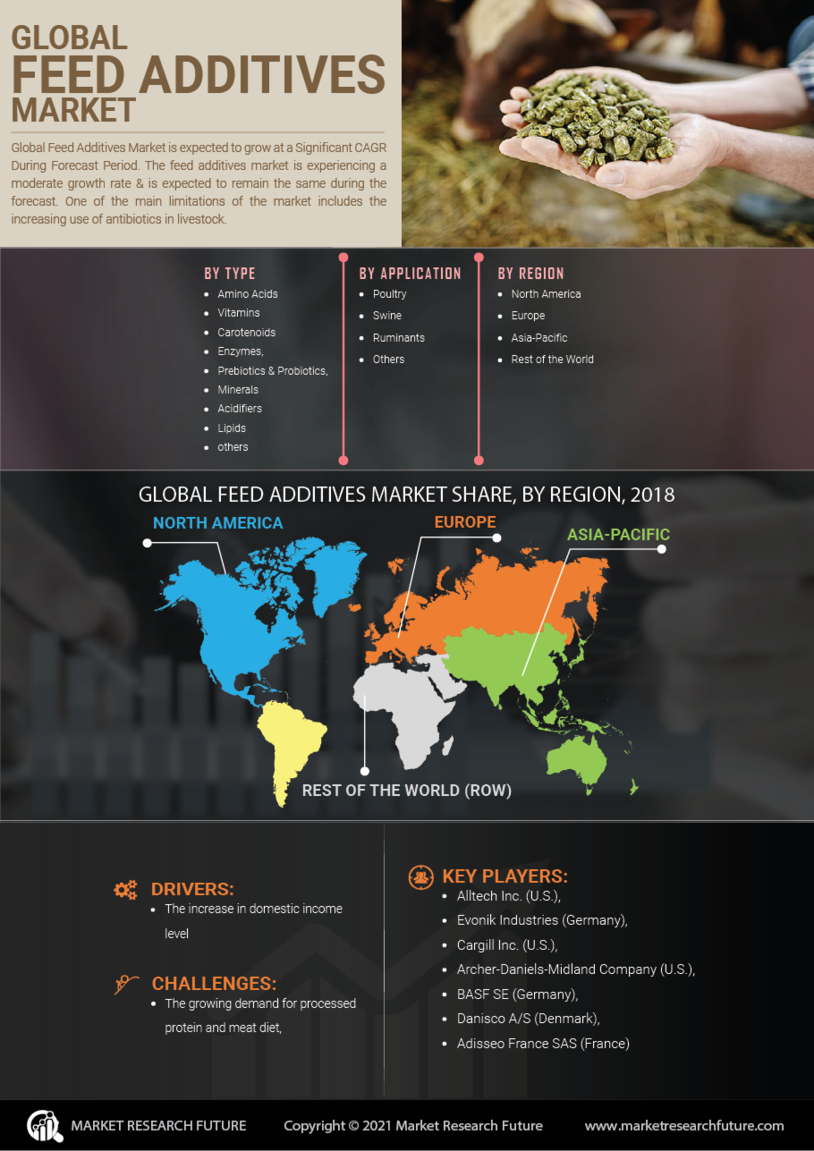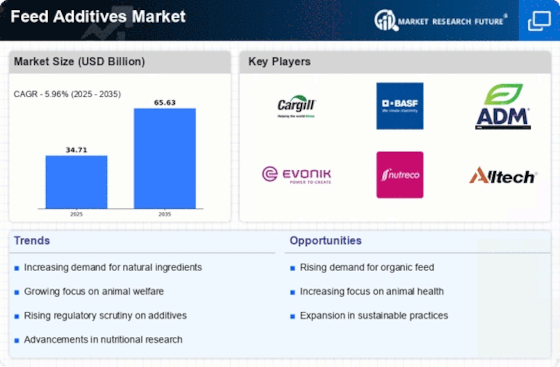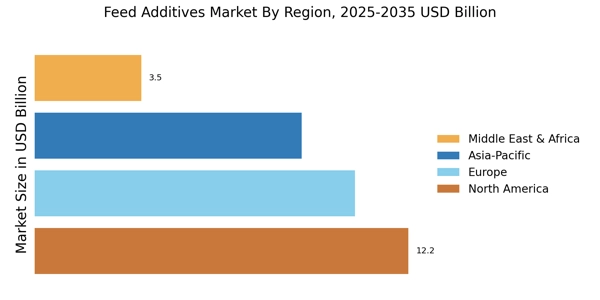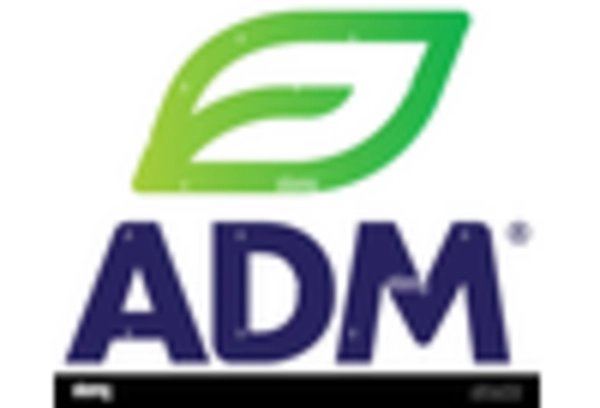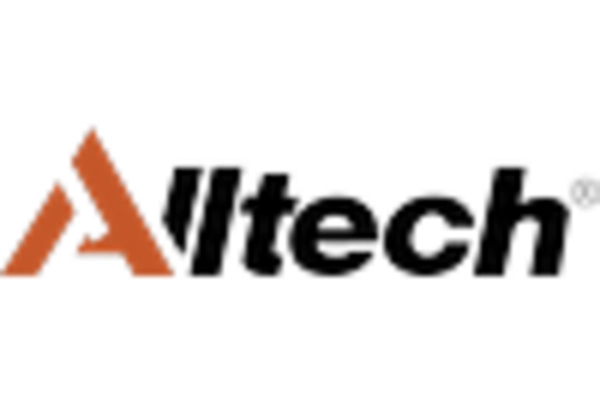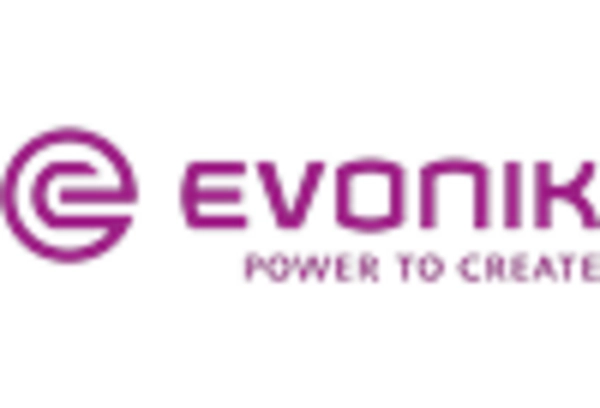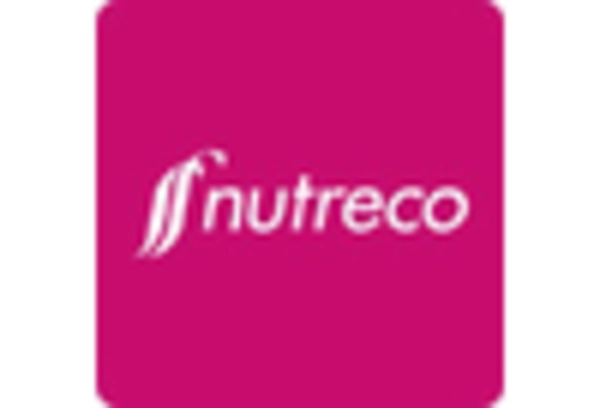Rising Demand for Animal Protein
The increasing The Feed Additives Industry. As consumers become more health-conscious, the preference for high-quality meat and dairy products intensifies. This trend is reflected in the projected growth of the livestock sector, which is expected to expand by approximately 1.5% annually. Consequently, feed additives play a crucial role in enhancing the nutritional value of animal feed, thereby improving livestock productivity. The Feed Additives Market is likely to benefit from this surge in demand, as producers seek to optimize feed efficiency and animal health, ensuring a sustainable supply of protein-rich food.
Expansion of Aquaculture Practices
The expansion of aquaculture practices is emerging as a crucial driver in the Feed Additives Market. As the demand for seafood continues to rise, aquaculture is becoming an increasingly important source of fish and other aquatic products. Feed additives play a vital role in aquaculture by improving feed conversion rates and promoting the health of farmed fish. The aquaculture sector is projected to grow at a rate of approximately 5% annually, creating substantial opportunities for feed additive manufacturers. This growth is likely to stimulate innovation in the Feed Additives Market, as companies develop specialized products tailored to the unique nutritional needs of various aquatic species.
Regulatory Support for Feed Quality
Regulatory frameworks aimed at improving feed quality and safety are increasingly influencing the Feed Additives Market. Governments and international organizations are implementing stringent regulations to ensure that animal feed meets specific safety and nutritional standards. This regulatory environment encourages the adoption of feed additives that enhance feed quality, promote animal health, and prevent disease. For instance, the introduction of guidelines for antibiotic use in livestock has led to a shift towards alternative feed additives, such as probiotics and prebiotics. As a result, the Feed Additives Market is witnessing a growing demand for innovative solutions that comply with these regulations, fostering a more sustainable and responsible approach to animal husbandry.
Technological Innovations in Feed Production
Technological advancements in feed production are significantly shaping the Feed Additives Market. Innovations such as precision nutrition, which tailors feed formulations to the specific needs of animals, are gaining traction. These technologies enable producers to optimize feed efficiency and reduce waste, ultimately leading to cost savings. Moreover, the integration of data analytics and artificial intelligence in feed formulation processes is enhancing the ability to create customized feed additives that improve animal performance. The Feed Additives Market is likely to see increased investment in research and development, as companies strive to leverage these technologies to meet the evolving demands of livestock producers and consumers alike.
Growing Awareness of Animal Health and Welfare
The rising awareness of animal health and welfare is a significant driver in the Feed Additives Market. Consumers are increasingly concerned about the conditions in which livestock are raised, leading to a demand for products that promote animal well-being. Feed additives that enhance gut health, improve immune function, and reduce stress in animals are becoming more popular. This trend is reflected in the growing market for organic and natural feed additives, which are perceived as safer and more humane. As a result, the Feed Additives Market is likely to experience growth as producers seek to align their practices with consumer expectations and enhance the overall health of their livestock.
